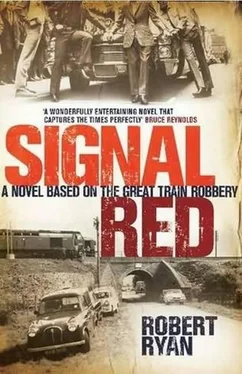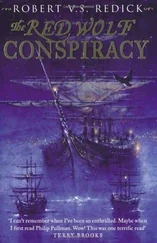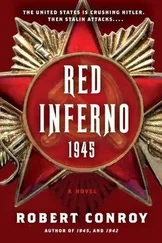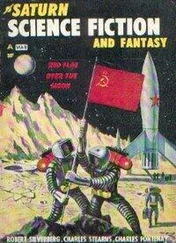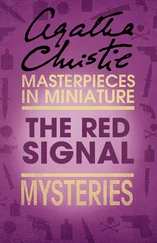'Who?'
'The co-driver. David something.' Anything to do with the robbery had always caught my eye, often triggered a what-if moment, where I thought about how close I came to being in that dock. 'Heart-attack. Thirty-three or four, he was.'
'Shit. That's a tough break.' Then, with a twinkle in his eye, 'They blame that one on me as well?'
'Not that I heard.'
Bruce stood, pulled on his overcoat, picked up the glasses and cups from the table and took them to the sink. 'Ah, well,' he said with a rueful smile as he rinsed them. 'As the old Sinatra song has it, you might be on top of the world in April, but you'll crash and burn in May.'
We stood staring at each other, pondering this pearl of wisdom from Ol' Blue Eyes. 'Wasn't he back on top in June?' I asked.
Bruce put a quarter-inch of milk in a saucer and placed it outside the kitchen door, then locked and bolted it. Placing
a bony, veined hand on my shoulder, he steered me towards the front door, flicking off lights as he went. When he spoke, the jaunty sing-song tone had disappeared, replaced by a melancholy whisper.
'Ask Roy. He'll tell you. Sometimes June is a fuck of a long time coming.'
Bruce Reynolds: after moving around various safe houses in London, he fled abroad (France, Mexico) but, once the money ran low, he came back to the UK. He was caught by Tommy Butler in Torquay in 1968, given a twenty-five- year sentence but released in 1978. Reynolds and his wife divorced while he was inside, but were reconciled upon his release. He did time in the early 1980s for dealing in amphetamine sulphate, which he still contests. Reynolds is the author of a very successful, and readable autobiography (see Acknowledgements).
Ronald Biggs: the most famous/notorious of the robbers, but one who played only a small part in the robbery itself. After his escape from Wandsworth in 1965, he moved around the world before settling in Rio, where he fathered a child who saved him from extradition by Jack Slipper. In 2001, he returned to England, a very sick man, having been on the run for a total of thirty-eight years. He was released on compassionate grounds in 2009 so he could die a free man.
Ronald 'Buster' Edwards: on the run, he joined Bruce Reynolds in Mexico but, homesick, he eventually returned to the UK and gave himself up. He was sentenced to fifteen years in 1966 and was released in 1975. Despite being portrayed as a lovable cockney rogue by Phil Collins in the movie Buster, there are those who still believe he was the one who coshed driver Jack Mills. Found hanged in his garage in 1994, at the age of 62.
Charlie Wilson: sentenced to thirty years, he escaped from Winson Green Prison after four months. He was tracked down in 1968 by Tommy Buder in Canada, brought home, and served twelve years. Wilson was shot dead outside his Marbella home in April 1990.
Roy James: the talented racing driver was jailed for thirty years; he served twelve. An attempt to pick up his driving career failed and for a while he ran a gold VAT scam with Charlie Wilson, narrowly avoiding jail. In early 1993, he was sentenced to six years after shooting his father-in-law and hitting his wife with a pistol butt. He died of a heart-attack in 1997.
Brian Field: the solicitor was released in 1969. His wife Karin divorced him while he was in prison, and married a German journalist. He died in a motorway accident in 1979.
Thomas Wisbey: another thirty-year man, he was released in 1976. However, after a period as a car dealer, he fell back into crime and was jailed for ten years in 1989 for cocaine dealing. Now retired.
Robert Welch: sentenced to thirty years and released in 1976. Crippled by a bungled leg operation in prison, he ran clubs when released. Now retired.
Gordon Goody: sentenced to thirty years and released in 1975, he claimed in the Carlton TV programme I Was A Great Train Robber that he spent most of his share of the money on lawyers and was 'ripped off for much of the rest.
James Hussey: sentenced to thirty years, he was released in 1975. He became a car dealer (in Warren Street) but was jailed for seven years in 1989 for cocaine dealing. Retired.
Roger Cordrey: sentenced to twenty years for rigging railway signals but served fourteen after an appeal. Returned to being a florist in the West Country.
James White: was on the run for three years, but eventually gave himself up and was sentenced to eighteen years in 1966. Released in 1975 and opted for a quiet life in Sussex.
William Boal: died of a brain tumour in 1970 while serving his sentence. Bruce Reynolds always maintained he was never part of the gang.
Leonard Field: involved in the purchase of Leatherslade Farm. Sentenced to twenty-five years for conspiring to obstruct the course of justice, later reduced to five. Released in 1967.
John Wheater: a solicitor jailed for three years in 1964 for conspiring to pervert the course of justice. He was released in 1966.
There are persistent rumours that between one and three robbers were never arrested or prosecuted. The man identified as 'The Ulsterman' in several accounts ('Jock' here) has also never been traced, nor has the mysterious Mark who acted as go-between. Stan (sometimes called Peter), the retired train driver, also disappeared without trace.
This novel is a work of fiction. It uses real characters and situations, but I have treated them as a novelist, not a historian. Many characters are entirely fictitious, and any resemblance between them and persons living or dead is entirely fictitious. Nevertheless, the arc of the story, from airport job to train robbery and subsequent capture and prosecution, is an accurate representation of the gang's operations.
I would like to thank Mike Lawrence, motor-racing guru and author of many fine books on the sport, including The Glory of Goodwood (with Simon Taylor and Doug Nye), who was my very first port of call. I knew I wanted to avoid building the story around the two most well-known train robbers, Ronnie Biggs and Buster Edwards. Roy James (there is some confusion over whether he was ever consistently called 'the Weasel', or if the police got it wrong and the name stuck) seemed to me one of the most tragic of the thieves. Whether he was as outrageously talented as some suggest, I'm not convinced, but he was certainly a more than capable driver, on and off the track.
Mike not only knew the Roy James story intimately, he
knew Roy himself: he raced against him in his karting days, and thought highly of his skill. The early scenes on the air base came from Mike's memory, but, of course, filtered through my distorting lens.
Thank you to Holly Groom for additional research on the trial of the robbers and to Sinead Porter of the News International syndication department for allowing me to use part of Colin Maclnnes' article An Honest Citizen's Guide to the Criminal Classes and extracts from The Times newspaper. Thanks also to Duncan Campbell, ace crime reporter and author of the excellent novel If It Bleeds, which features a walk-on by Bruce Reynolds.
As initial source material I used the memoirs of Jack Slipper (Slipper of the Yard), George Hatherill (A Detective's Story, which contains the story of the headless corpse in Cornwall), and Ernest Millen (Specialist in Crime, wherein Millen claims the big tip-off came from an interview with a snitch in prison), as well as Bruce Reynolds's highly readable Autobiography of a Thief, Piers Paul Read's The Train Robbers, Wensley Clarkson's Killing Charlie, Ronnie Biggs's Odd Man Out and Keep on Running, and Peta Fordham's The Robbers' Tale.
But if you want a concise, authoritative overview of the truth – all the previous titles being unreliable in one aspect or another – I would point you to Peter Guttridge. His The Great Train Robbery for the Crime Archives series of the National Archives is a skilfully condensed version of the whole saga, including the unanswered questions. Chief among these is, was there a Mr Big? (We'll never know, but it's unlikely.) Where did the money dumped in Dorking woods and Black Horse Court come from? Again, we'll probably never know, but it was alleged in the Carlton TV programme I Was A Great Train Robber that Brian Field's parents got rid of the
Читать дальше
